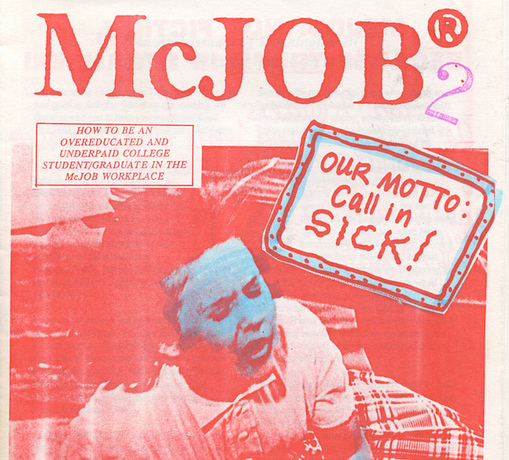
When schools switched to distance learning amid the lockdown, it represented a chance to rethink education and ed-tech, from lessons to schedules to evaluation.
For the most part, we have squandered that chance, doubling down on the most destructive educational practices.
1/
For the most part, we have squandered that chance, doubling down on the most destructive educational practices.
1/

This is true across the board, not just in ed-tech. Take the bizarre start-times for classes - as early as 7AM for students enrolled in "period 0" classes. This timing has nothing to do with best practices in pedagogy or our understanding of adolescent brain-development.
2/
2/
Instead, it's a least-worst option arising from the US's unwillingness to treat high-quality child-care as a public good that benefits both kids and working parents. We open our schools at o-dark-hundred because parents need to get to work.
3/
3/
This, despite the fact that the majority of teens' body-clocks shift nocturnally as they go through puberty. We know that waking kids up early hurts their learning outcomes, but we accept that tradeoff because the alternative (kids whose parents can't earn a living) is worse.
4/
4/
Virtual schools represented an opportunity to shift education to more humane hours, but we blew it. And that's the least of our failures, barely registering in comparison with the way that we failed to fix ed-tech even as it grew to eclipse all other pedagogical questions.
5/
5/
Exhibit A, of course, is "remote invigilation," the spyware that we force students to install on their computers in the name of preventing cheating on the pedagogically bankrupt high-stakes tests we cling to.
pluralistic.net/2021/04/22/iho…
6/
pluralistic.net/2021/04/22/iho…
6/
These tools are force-multipliers for the destructive power of high-stakes testing: their junk-science "sentiment analysis" facial recognition algorithms can't recognize dark-skinned faces, forcing Black kids to sit tests with multiple lamps shining directly in their eyes.
7/
7/
Students forced to use tools like @proctorio are expected to rotate their webcams 360' to prove they're alone in a room at home - which means that poor kids who share a room (or can only get wifi in the parking lot of a Taco Bell) are penalized for poverty.
8/
8/
Unsurprisingly, a company that would knowingly torment children in this way is run by terrible people and behaves terribly. It's not just that the CEO doxed a child who complained about his products on Reddit:
pluralistic.net/2020/07/01/bos…
9/
pluralistic.net/2020/07/01/bos…
9/
The company has also abused copyright law to sue and intimidate its critics, including a student security researcher who revealed defects in the company's products:
pluralistic.net/2021/04/22/iho…
10/
pluralistic.net/2021/04/22/iho…
10/
The fact that businesses that profit by spying on children are run by awful, awful people is no surprise.
One of the most established ed-tech categories is censorware, which schools are required to install as a condition of receiving federal funds, under 1997's CDA.
11/
One of the most established ed-tech categories is censorware, which schools are required to install as a condition of receiving federal funds, under 1997's CDA.
11/
This software captures every student's click and search-term, and often their chats and emails, and spies on all of it, using arbitrary word-matches and human classifications to block kids (and teachers) from seeing materials deemed "inappropriate."
12/
12/
The premise of this exercise is that somewhere there is a boiler-room full of prudes so large that it can look at billions and billions of webpages and decide which ones are and aren't "child-safe" and that an "AI" can pass judgment on the pages they haven't got to.
13/
13/
Even if you accept that bizarre premise, remember: this isn't an editorial process, it's a surveillance system. It's one thing for a school librarian to make decisions about which books to shelve, but this doesn't require them to spy on everything every kid tries to read.
14/
14/
For censorware companies to block your kids' data-requests, they have to intercept and examine them. Censorware is spyware. Given that, it's worth asking, "Who are we allowing to spy on our kids?
Terrible people, as it turns out.
15/
Terrible people, as it turns out.
15/
The school censorware industry is a subsidiary of the global censorware industry, and its largest clients aren't schools - their bread and butter is the tyrants of the Middle East and former Soviet Union, dictators who buy their products to keep their citizens in line.
16/
16/
These are the depraved human-rights abusers we get to spy on our kids (they also provide censorware for corporate, hotel and airport wifi!), and you know what? They've got TERRIBLE judgment.
17/
17/
Independent audits of their blocklists show that they're blocking about a third of the top search results for terms related to the common curriculum, with overblocking skewed heavily to women's health, reproductive health, and LGBTQ (no surprises there).
18/
18/
And, like Proctorio, these censorware companies have a long history of intimidating and harassing their critics, abusing copyright law to prevent independent analysis of their blocklists in a bid to make it impossible to test whether they are any good at their jobs.
19/
19/
We've been spying on schoolkids' online activities since 1997, and the pandemic only accelerated that process, and not just through test proctoring, either, as a new report from the Me2B Alliance shows.
me2ba.org/me2ba-product-…
20/
me2ba.org/me2ba-product-…
20/
The report analyzed 73 mobile apps that 38 schools in 14 US states were using as part of their administration and instruction and found that 60% of them transmit student data to commercial data-mining companies.
theregister.com/2021/05/04/sch…
21/
theregister.com/2021/05/04/sch…
21/
The apps were built using "free" SDKs from Facebook, Google and other surveillance companies; these SDKs make it easy to build apps quickly, but they also harvest the app users' data at scale and subject it to long-term retention and analysis.
pluralistic.net/2020/09/03/rip…
22/
pluralistic.net/2020/09/03/rip…
22/
Me2B found that the apps were sucking up "identifiers (IDFA, MAID, etc), Calendar, Contacts, Photos/Media Files, Location, Network Data (IP address), permissions related to Camera, Microphone, Device ID, and Calls."
23/
23/
Ios devices were far less likely to harvest user data than Android apps, but 1 in 4 still spied on users, and on both platforms, "95% of third-party data channels... are active even when the user is not signed in and that these apps send data as soon as the app is loaded."
24/
24/
Image:
Cryteria (modified)
commons.wikimedia.org/wiki/File:HAL9…
CC BY:
creativecommons.org/licenses/by/3.…
25/
Cryteria (modified)
commons.wikimedia.org/wiki/File:HAL9…
CC BY:
creativecommons.org/licenses/by/3.…
25/
ETA - If you'd like an unrolled version of this thread to read or share, here's a link to it on pluralistic.net, my surveillance-free, ad-free, tracker-free blog:
pluralistic.net/2021/05/06/boo…
pluralistic.net/2021/05/06/boo…
• • •
Missing some Tweet in this thread? You can try to
force a refresh










